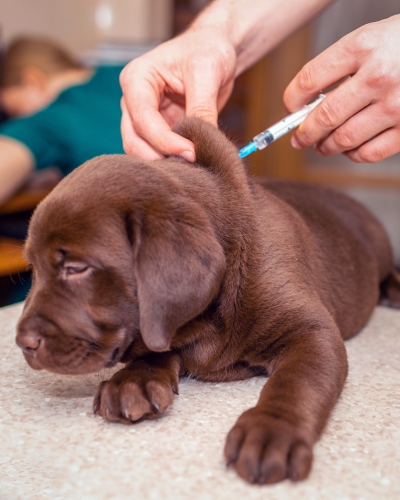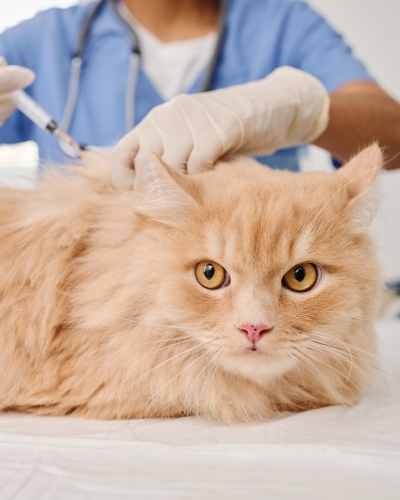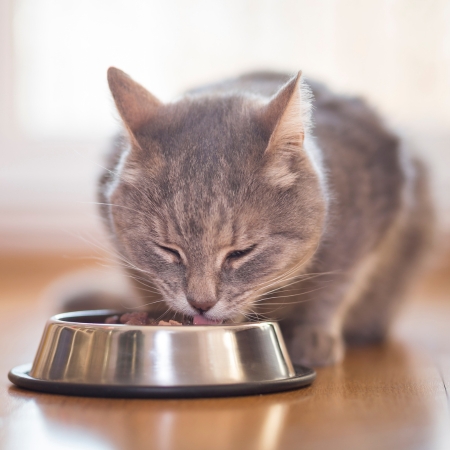Preventive care is a pet’s first line of defense. Wellness exams help by detecting, diagnosing, and treating disease in its early stages, often before any noticeable symptoms begin. The earlier preventive care starts, the more effective it is, keeping your pet from unnecessary pain and suffering as well as helping to ensure they live a long, healthy life.
In the course of your pet’s wellness exam, our veterinarian will gather a thorough history and discuss your pet’s diet, behavior, and activity levels. Then, the doctor will complete a full physical examination to evaluate aspects like body weight, oral health, and skin condition. The doctor will listen to your pet’s heart and lungs, and perform a hands-on assessment of the abdomen to detect any abnormalities. Joints are also evaluated for signs of swelling and arthritis.









